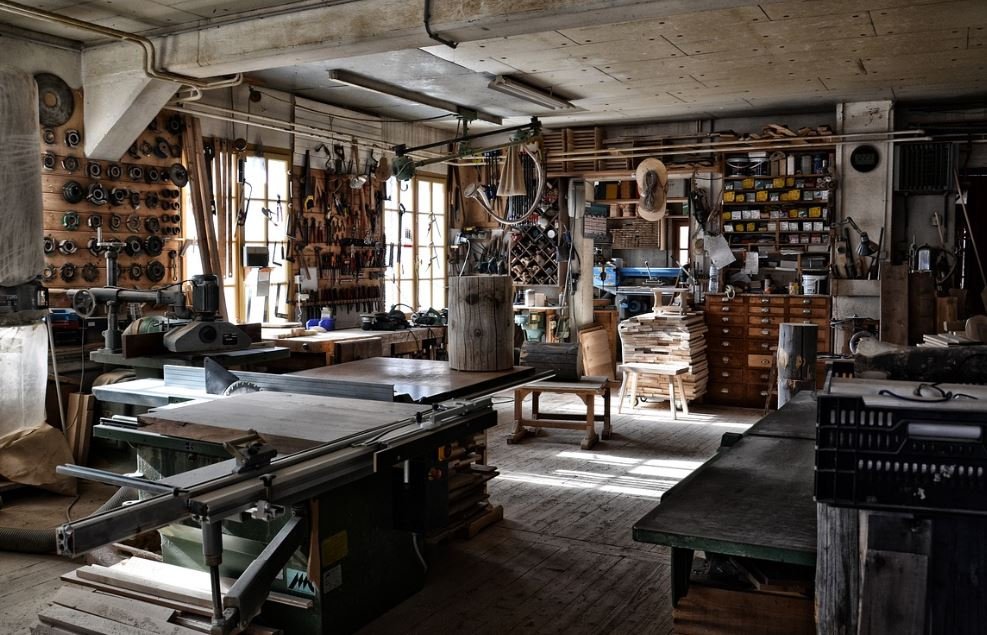Business
How To Keep Your Workshop Highly Productive

If you have a workshop as part of your business, you are always thinking of ways for it to be more productive. Often that means thinking about automated equipment that can help with efficiency. While new equipment can help, there are other ways that you and your staff can get things done more quickly that don’t involve high-priced expenditures. Besides, some workshops mainly involve working by hand, which means equipment won’t help. Here are some tips for keeping your workshop highly productive with and without equipment.
[lwptoc]
Tidiness and Cleanliness
A tidy shop is a productive shop. There are several reasons for this. For one, let’s say that you have a lot of leftover materials from the products you make. Do they take up space next to workstations? If they do, they can be in the way of operators, who will have to spend a lot of time cleaning them up afterward. If you have waste receptacles all over the workshop, it can be easy for everyone to dispose of what they don’t need so that it’s not taking up space around them. Scraps of wood and other materials can quickly take up a lot of space in your workplace.
You can also invest in equipment that makes waste disposal easy. For example, a self dumping hopper is a great option since it can fit a lot of material and then be dumped without someone having to reach in and do it manually. Equipment like this will make things faster and safer if appropriately used.
A Place For Everything
If you have many tools on-site, they should be returned to their proper places as soon as someone is finished with them. On a related note, ensure that everything has a place in your workshop and is clearly labeled. There should never be a question about where something goes when it is put away. Too much productivity can be lost looking for equipment or tools in a large workshop with many nooks and crannies. Even if an operator is finished with a piece of equipment but plans to use it later, they should still put it away so that no one else has to search or wait for it.
Safety
The fact is that safety is important because you shouldn’t want anyone to get hurt or worse. However, in a practical sense, accidents and injuries can significantly affect a workshop’s productivity. First, on the day of the accident, the rest of your team will be distracted by what’s happened, and you will have one fewer person during the rest of the day. Plus, you will have to find a replacement for that injured worker if they have to miss work. That replacement will need to be trained and get up to speed. All of this will affect your workshop’s productivity.
You should have a strong culture of safety within your workplace. Make sure that everyone has the proper training and knowledge to keep everyone safe at all times. Regular reminders, such as posters on the wall and reinforcement through disciplinary actions, will keep safety at the top of your workers’ minds.
Regular Breaks
Providing your employees with breaks is a great way to maintain and improve productivity. The fact is that after a certain period of time, the body will get tired and slow down. You will have diminished returns from keeping your workers working away past this point. Give them chances to refresh and recharge, and the work will be better. You can also monitor your team to determine if they need an impromptu refresher when there usually wouldn’t be one.
Do Not Allow Special Projects
Depending on the type of workshop, you may have employees, or it could even be you, who have special projects on the go. They may be personal projects for fun, for example. However, while providing them with this space for their extracurricular activities is nice, they can often be more trouble than they are worth. They take up space that could be used for other things. Plus, your staff may be distracted by those projects instead of the ones making money for the business.
Limit Access to the Workshop
There should not be anyone other than employees who need to be there in the workshop. Customers or partners should be kept in an office or waiting room area. If someone needs to meet with someone who works in the workshop, the employee can come out to them. Having people walk through the workshop is not just unsafe, but it is distracting and can cause issues with productivity. Lock the workshop doors and sign that only authorized personnel are permitted.
Productivity is the most important aspect of any workshop. The more and faster you produce, the more money you can make. With these tips, you can keep your workshop productive and your products are moving out the door.
-

 Celebrity4 weeks ago
Celebrity4 weeks agoIs YNW Melly Out Of Jail? What Is The YNW Melly Release Date, Career, Early Life, And More
-

 Sports4 weeks ago
Sports4 weeks agoMore Than Just a Game: How College Sports Can Shape Your Future
-

 Tech3 weeks ago
Tech3 weeks agoAI Software: Transforming the Future of Technology
-

 Tech3 weeks ago
Tech3 weeks agoAll About Com. Dti. Folder Launcher: Features, Benefits, Tips, And More













